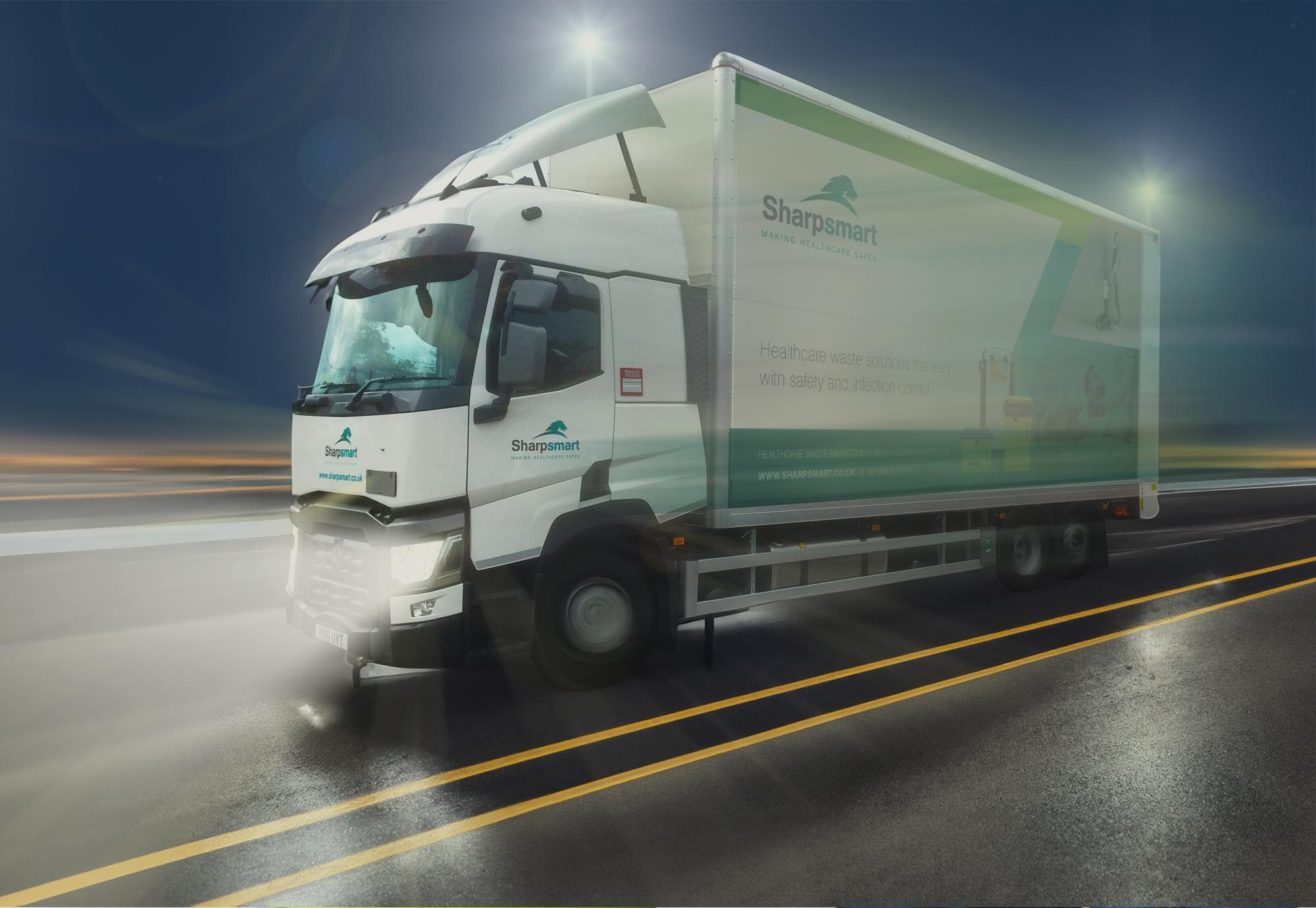Navigating the NHS Net Zero Supplier Roadmap has its challenges, but it also provides plenty of opportunities for innovation.
Sharpsmart have found this to be especially true whilst seeking out an alternative fuel strategy and a more sustainable approach to operating a commercial vehicle fleet.
The Challenges of Going Fully Electric
The ‘simple’ solution would be to transition to a fully electric fleet and be done with it, but there are several challenges in doing so, some of which include:
- Insufficient charging infrastructure.
- Extended charging durations, causing increased vehicle downtime compared to traditional refuelling.
- Restricted driving range for existing electric vehicles.
- Shortage of technicians trained specifically for electric vehicle maintenance.
- Scarcity and limited availability of larger/specialised electric vehicle models.
Sharpsmart has been implementing various vehicle efficiency strategies to reduce the impact of diesel-powered vehicles in line with its Carbon Reduction Plan whilst exploring solutions to transition to a fully electric vehicle fleet.
Finding Vehicle Efficiency Hacks
Some of the changes that have been made to make the vehicles more efficient and reduce their environmental impact are:
Latest fuel-efficient engines
Using engines designed for higher power with fewer revolutions.
Automatic gearboxes
Using gearboxes that automatically select the optimal gear, reducing engine and component wear, and minimising fuel consumption.
Improved aerodynamics
Enhanced vehicle aerodynamics reduce drag which has a significant impact for vehicles with large bodies.
Energy-efficient tyres
Using energy-efficient tyres decreases road surface resistance and contributes to reduced fuel consumption.
Recycled materials commitment
Selecting manufacturers committed to using recycled materials ensures recyclability at the end of a vehicle’s life.
Even with various changes introduced to enhance vehicle efficiency, traditional diesel-powered vehicles still pose environmental concerns and one particular challenge in this regard was tail lifts.
Addressing the Issue of Tail Lifts
Tail lifts are integral to operations but they also consume a lot of energy and components, resulting in a negative environmental impact.
Also, technological advancements in the tail lift area lag behind those with other vehicle components with traditional solutions involving additional batteries and vehicle idle modes – further contributing to environmental harm.
A typical waste collection service for a 500-bed acute hospital site involves around 42 bins with an average of 7 lifts per service, each day.
When you multiply that through a whole fleet of vehicles and hospitals receiving daily collection services, it soon adds up.
Those numbers make finding a solution for addressing the impact of tail lifts on carbon footprint a crucial endeavour.
Harnessing the Power of the Sun
What was the solution that Sharpsmart landed on?
Using the sun – through an intermediary known as the TRAILAR system.
Introducing the TRAILAR solar solution has optimised energy consumption for various electrical consumables including tail lifts.
It’s saved fuel, reduced costs and carbon emissions, improved operational efficiency and helped:
- Reduce the need for extra batteries by cutting energy consumption.
- Ensure constant electrical system charging through natural light, minimising the need for engine idling.
- Provide real-time data, warning of potential charging issues, reducing downtime and enhancing overall vehicle performance.
Sharpsmart’s initial efficiency estimates indicate an average saving of £450 per vehicle annually, with a significant CO2 reduction of 200kg per vehicle per annum, or 4200 tons collectively as a fleet.
On the Route to Net Zero, Together
As an organisation committed to achieving net zero emissions by 2040, Sharpsmart’s plastic reduction, GHG and Co2 emissions impact is transforming the environmental footprint of NHS Hospitals and Trusts across the UK.
Taking a partnership approach and working within the four walls of healthcare facilities, Sharpsmart’s mission is one of achieving Net Zero, together.



















